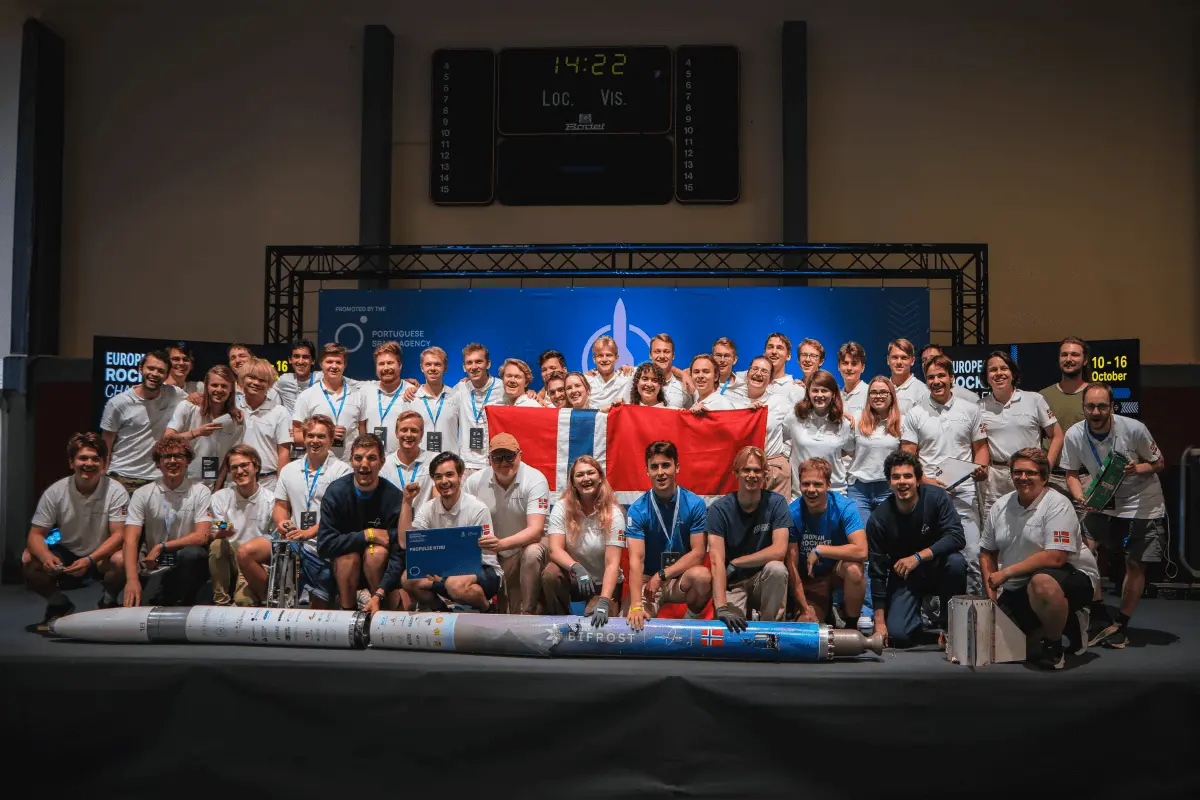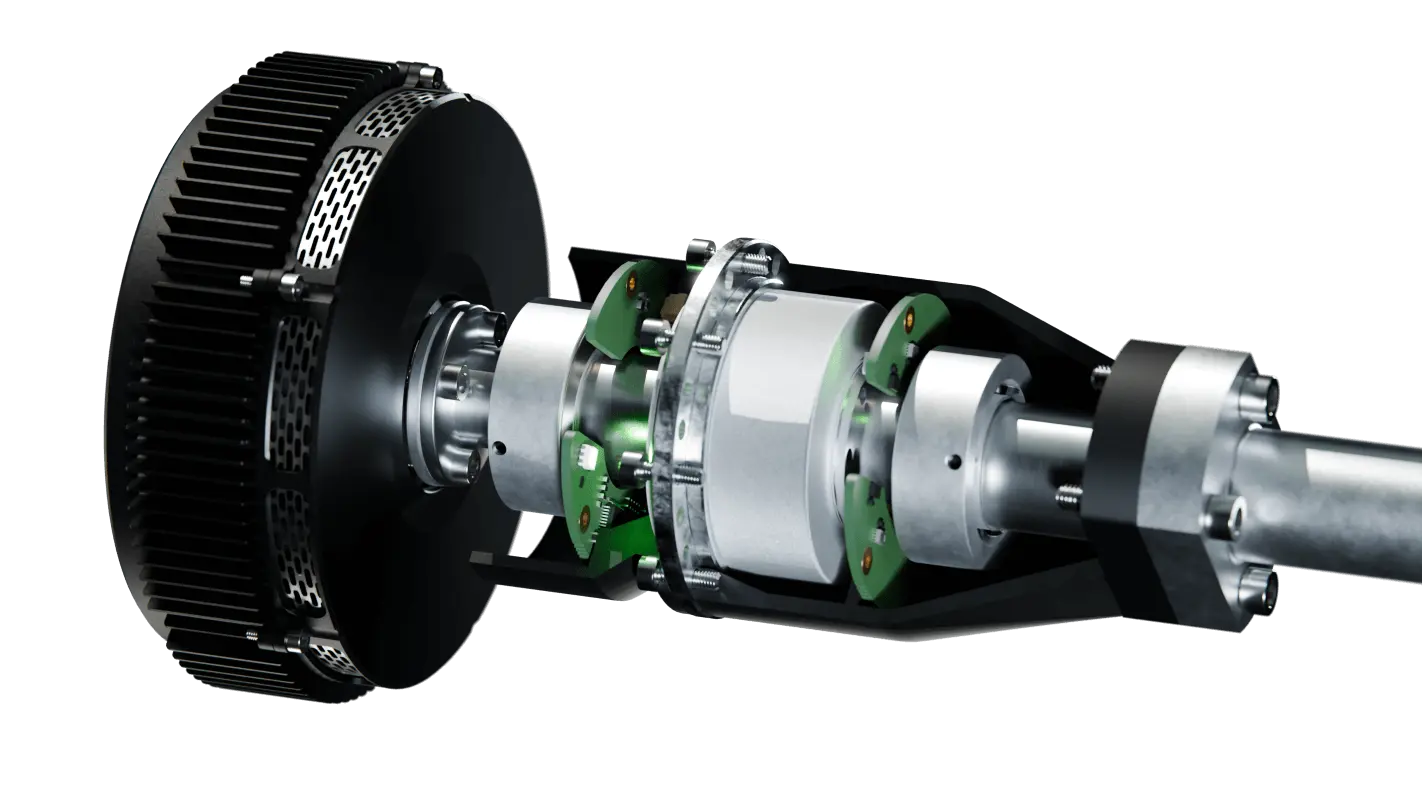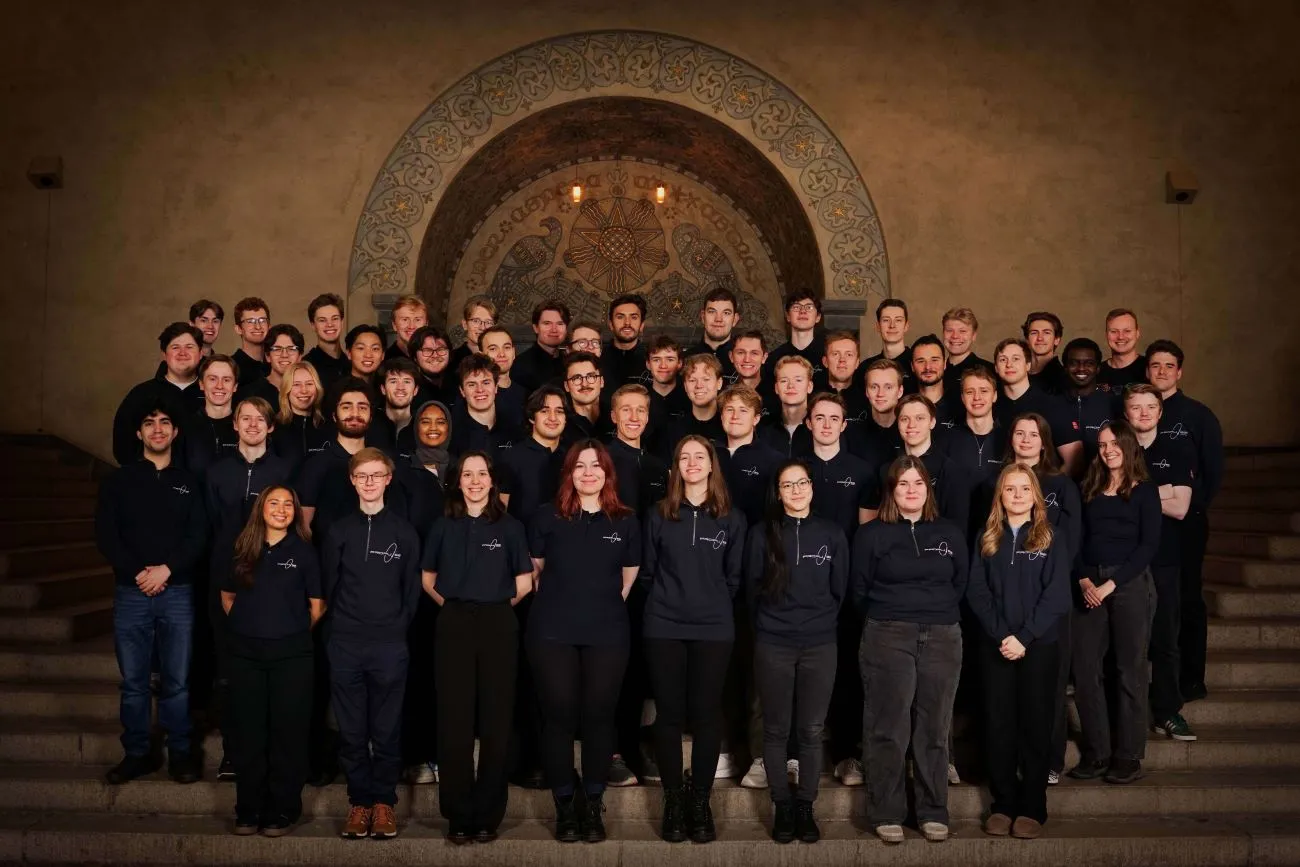
배경
Propulse NTNU is a student rocketry team at the Norwegian University of Science and Technology (NTNU). Known as the fastest and most energetic student project, the team is composed of highly motivated engineering students who design, build, and launch Norway's first and only bi-liquid propellant rockets. These advanced systems use two separate liquid fuels that mix and ignite inside the combustion chamber, offering control and efficiency.
Each year, the team develops an entirely new rocket, pushing the boundaries of student aerospace engineering while providing members with hands-on experience far beyond typical university education. Built in their spare time, these rockets can reach extraordinary speeds just seconds after launch.
과제
To successfully fly bi-liquid propellant engines, it is vital to accurately control different valves in the system that control the propellant flow into the combustion chamber. For safe and effective operation, the rocket's thrust must be finely regulated using motor-driven valves and control actuators.
Accurate and reliable feedback of the motor position is essential for the correct operation of such a system, especially under the high-speed and vibration-prone conditions of rocket flight. Precise motion feedback helps to control the engines easily and accurately and allows us to regulate the engine's performance autonomously.

Project Stetind, 2021
솔루션
To meet the demanding requirements of precise valve control, Propulse NTNU integrated the Orbis™ absolute rotary magnetic encoder from RLS. Paired with a high pole-count brushless motor and a field-oriented control system, the encoder provides high-resolution position feedback, which is essential for fine valve modulation and stable engine performance. Its compact, non-contact design makes it ideal for the confined, vibration-intensive conditions inside a rocket.
Beyond rocket propulsion, the team is also using Orbis encoders in a new research and development project: a test drone powered by coaxial propellers and equipped with a thrust vector control system. This “hopper” platform was developed on the basis of modern aerospace technologies and enables stable vertical take-off and landing manoeuvres.
In this application, RLS encoders are mounted on linear actuators to precisely control engine direction. Their high accuracy enables fine control of motor currents and actuator movement, achieving linear positioning with an accuracy of 0.04 mm.

Orbis encoders in Propulse NTNU's system
Position feedback by Orbis™
The Orbis true absolute rotary encoder delivers precise, high-resolution angular position feedback immediately upon power-up. Its true absolute output, based on a non-contact magnetic sensing principle, ensures reliable performance in harsh environments with exposure to vibration, dust or temperature fluctuations.
Thanks to its compact design, it can be easily integrated into systems with limited space, and its through-hole measurement principle allows it to be adapted to different board and magnet sizes to meet the customer's specific applications.
Orbis is designed for high performance motion control and supports digital output protocols such as ABZ, BiSS C, PWM, sin/cos, SPI, SSI, UART and UVW, making it compatible with a wide range of motor controllers. Its durability, compact size and maintenance-free operation make it ideal for demanding applications such as Propulse NTNU's propulsion and thrust vectoring systems, where accurate and reliable position feedback is critical to mission success.
“RLS encoders provide a compact, precise and easy-to-use solution, making them a perfect fit for our advanced systems. Their magnetic encoders are perfect for our vibration-prone environment and have proven to be very reliable.” says Sverre Ose Kristensen, Avionics Mentor.
결과
The integration of Orbis encoders has enabled Propulse NTNU to achieve precise control of high pole-count brushless motors, which is essential for the accurate modulation of their propulsion systems. This has ensured stable and repeatable performance of key components during rocket launches and testing. Thanks to the robust, non-contact magnetic design of the encoder, the system operates reliably even in harsh, vibration-prone environments. In addition, a compact and customisable encoder enabled the team to build efficient, space-saving systems without compromising on the precision of the position measurement.
Future Goals
The team's ambitious goal is to build a rocket that is capable of crossing the 100 km long Kármán line – the boundary of space. Every year, the rockets undergo further technical development.
About Propulse NTNU
Propulse NTNU is a student rocketry team at the Norwegian University of Science and Technology (NTNU), offering hands-on engineering experience beyond the classroom.

For more information visit: propulse.no.


